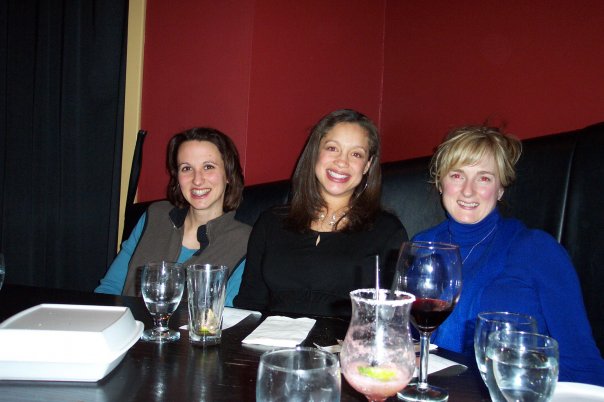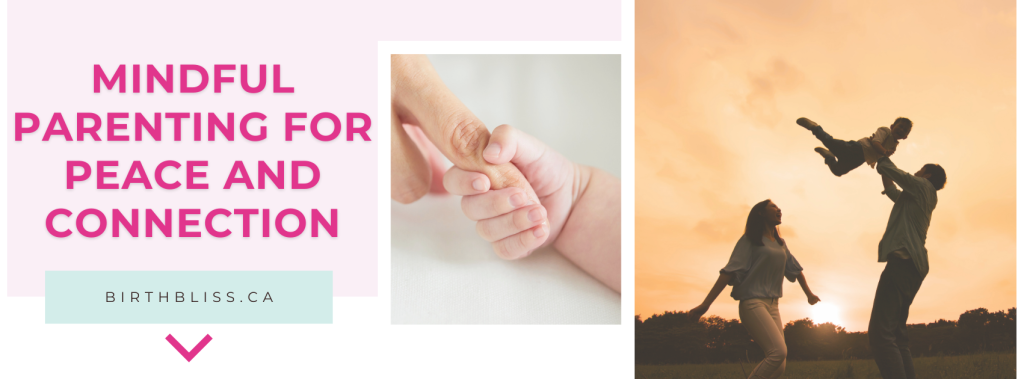
I’ve learned that the heart of yoga practice is mindfulness, being fully aware, present, and compassionate in each unfolding moment. When we bring that same awareness into our parenting, we discover not just tools for handling challenges, but a way to create deeper parent-child connections and cultivate peaceful parenting habits.
I was first introduced to Jon Kabat-Zinn’s work during my prenatal yoga training, and later I began reading Everyday Blessings: The Inner Work of Mindful Parenting, written by Jon and Myla Kabat-Zinn. Their teachings reminded me that mindful parenting techniques are not about perfection, but about presence. As they write, it is about “moment-to-moment, non-judgmental awareness” that allows us to see the wholeness of our children beyond behaviors. Read more here.
What is Mindful Parenting?
Mindful parenting means cultivating awareness of our own thoughts, emotions, and patterns while we parent. It is about shifting from reactive habits to intentional responses that foster connection, compassion, and authenticity.
Some key mindful parenting benefits include:
- Stronger parent-child connection
- Reduced stress in the family environment
- More compassionate discipline rooted in understanding
- Greater patience and emotional regulation for parents
- Modeling healthy coping skills for children
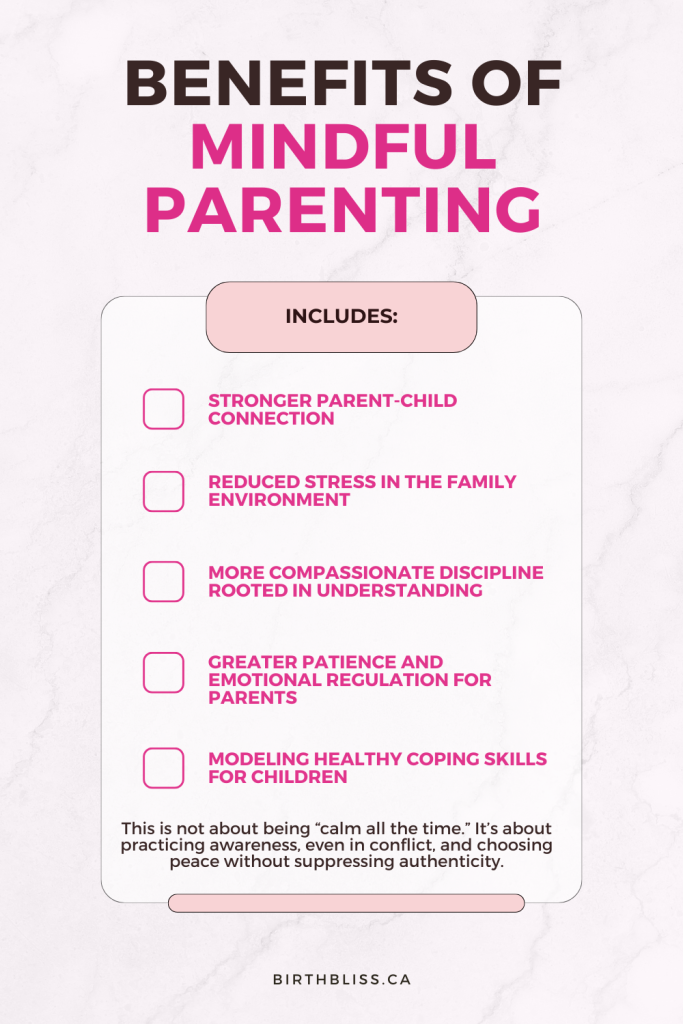
This is not about being “calm all the time.” It’s about practicing awareness, even in conflict, and choosing peace without suppressing authenticity.
Mindfulness in Parenting Tips
Jon and Myla Kabat-Zinn suggest exercises that invite present-moment parenting:
- See the world through your child’s eyes, not just your expectations.
- Practice listening silently, without rushing to fix.
- Apologize when you fall short; authenticity builds trust.
- Allow children to explore different aspects of themselves while holding loving boundaries.
- Remember that each conflict is also an opportunity for growth and connection.
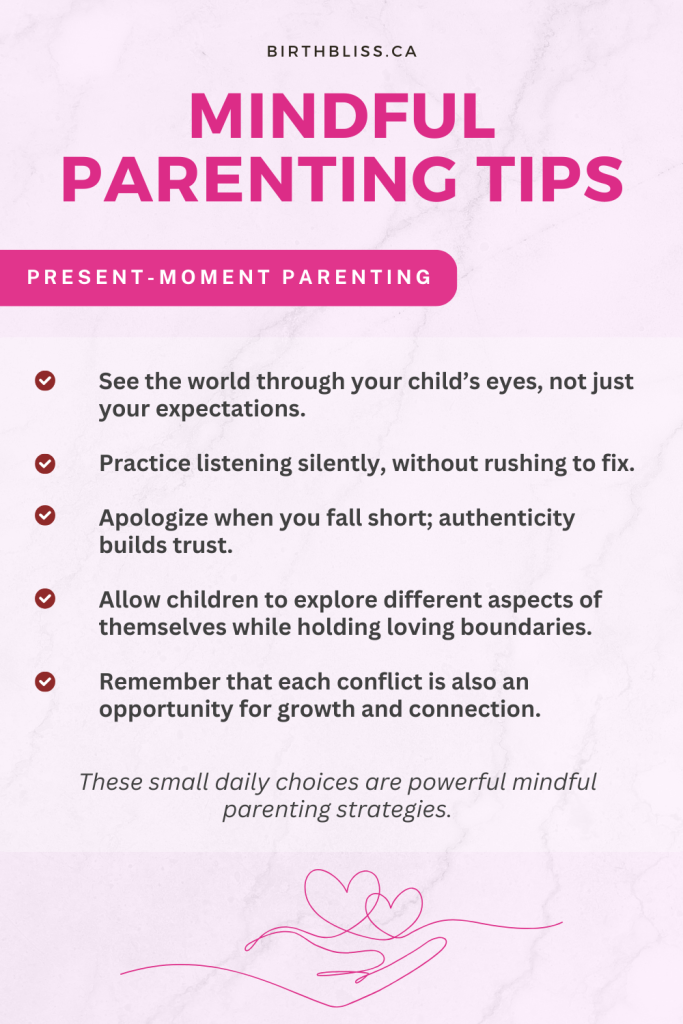
These small daily choices are powerful mindful parenting strategies.
Yoga-Inspired Parenting
In yoga, we learn to breathe through discomfort, observe our thoughts without judgment, and find balance. These same practices translate beautifully into parenting. Yoga-inspired parenting might look like:
- Take three deep breaths before responding to a tantrum.
- Grounding yourself in the present moment before setting boundaries.
- Viewing your child as a “live-in Zen teacher” who reflects your own triggers and growth edges.
Instead of striving for control, mindfulness invites us to parent with curiosity, compassion, and presence.
Baby Products That Support Peaceful Parenting
Sometimes, mindful choices also extend to the tools and products we use. A few examples:
- Soft baby carriers (Ergobaby, Baby K’tan, Sakura Bloom wraps) – Encourage closeness and oxytocin flow, supporting calm parent-child connection.
- White-noise machines or sound soothers – Help create peaceful environments for rest.
- Mindful feeding tools – Slow-flow bottles or breastfeeding pillows that make feeding relaxed and unhurried.
- Eco-friendly toys and sensory mats – Encourage mindful play that fosters presence and bonding.
- Family meditation apps – Some even have guided breathing for parents and children to do together.
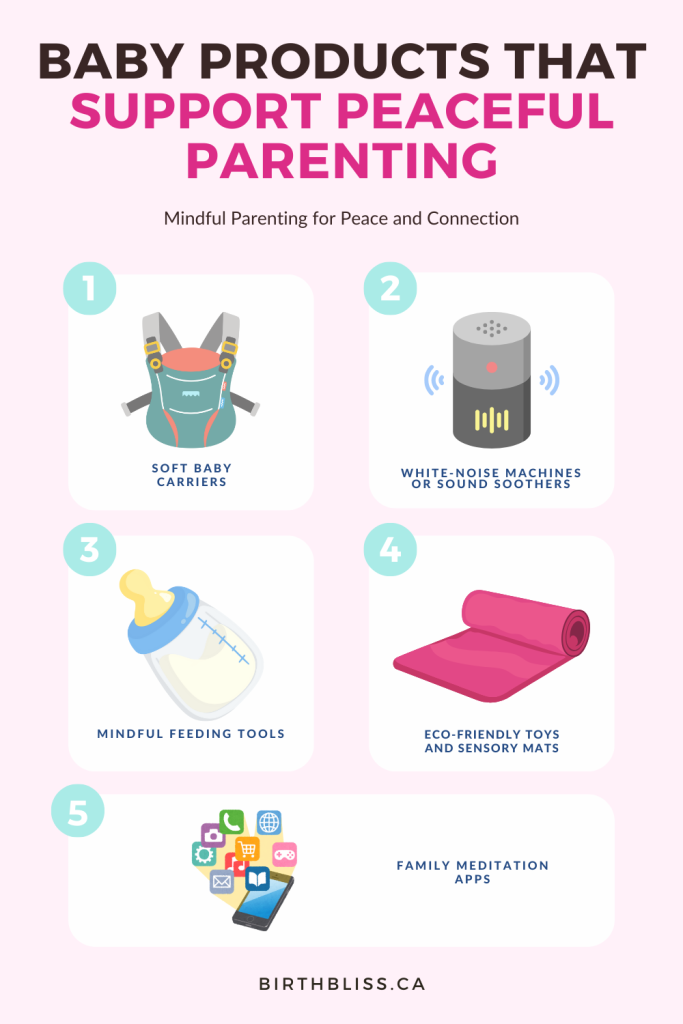
Choosing supportive products can create more opportunities for present-moment parenting by reducing stress and inviting connection.
Everyday Practice, Lifelong Benefits
As Jon Kabat-Zinn says, parenting is “as much a potential door into enlightenment as anything else.” Our children are not obstacles to mindfulness but invitations to practice it more deeply.
Whether it’s turning off the TV for an evening walk, apologizing after a moment of reactivity, or simply holding your baby skin-to-skin, these acts of presence bring peace into our homes.
Mindfulness in parenting is not about striving for perfection, it’s about showing up, again and again, with awareness, love, and intention.
If you’ve ever wondered “what is mindful parenting?”, the answer lies in practice: pausing, breathing, connecting, and choosing peace over reactivity. By weaving in mindful parenting techniques, embracing present-moment parenting, and building peaceful parenting habits, you nurture not only your child’s growth but your own.
Mindful parenting is the most challenging, yet deeply rewarding, practice we can bring into our lives, a practice that transforms family life into a journey of peace and connection.
✨Exclusive Deals:
- Grab Mellow Mornings for Pregnancy for a calm start to your day filled with baby love 💖 https://get.birthbliss.ca/mellow-mornings/
- Get relief from pregnancy nausea! 🤢 → 😌 Discover the Bye–Bye Morning Sickness Formula: https://get.birthbliss.ca/bye-byemorningsickness/
- Find Connection Inside BLOOMFUL. 🌸 Join a community of expecting moms just like you, exploring holistic tools for a better pregnancy. https://get.birthbliss.ca/bloomful/
- Grab the Guide to an Easier Birth 🌟: https://get.birthbliss.ca/bb/
- Join our FREE → ❤️ LOVE Your Birth Workshop: You’ll learn 3 steps to ease pain during labor (without an epidural): https://get.birthbliss.ca/training/

